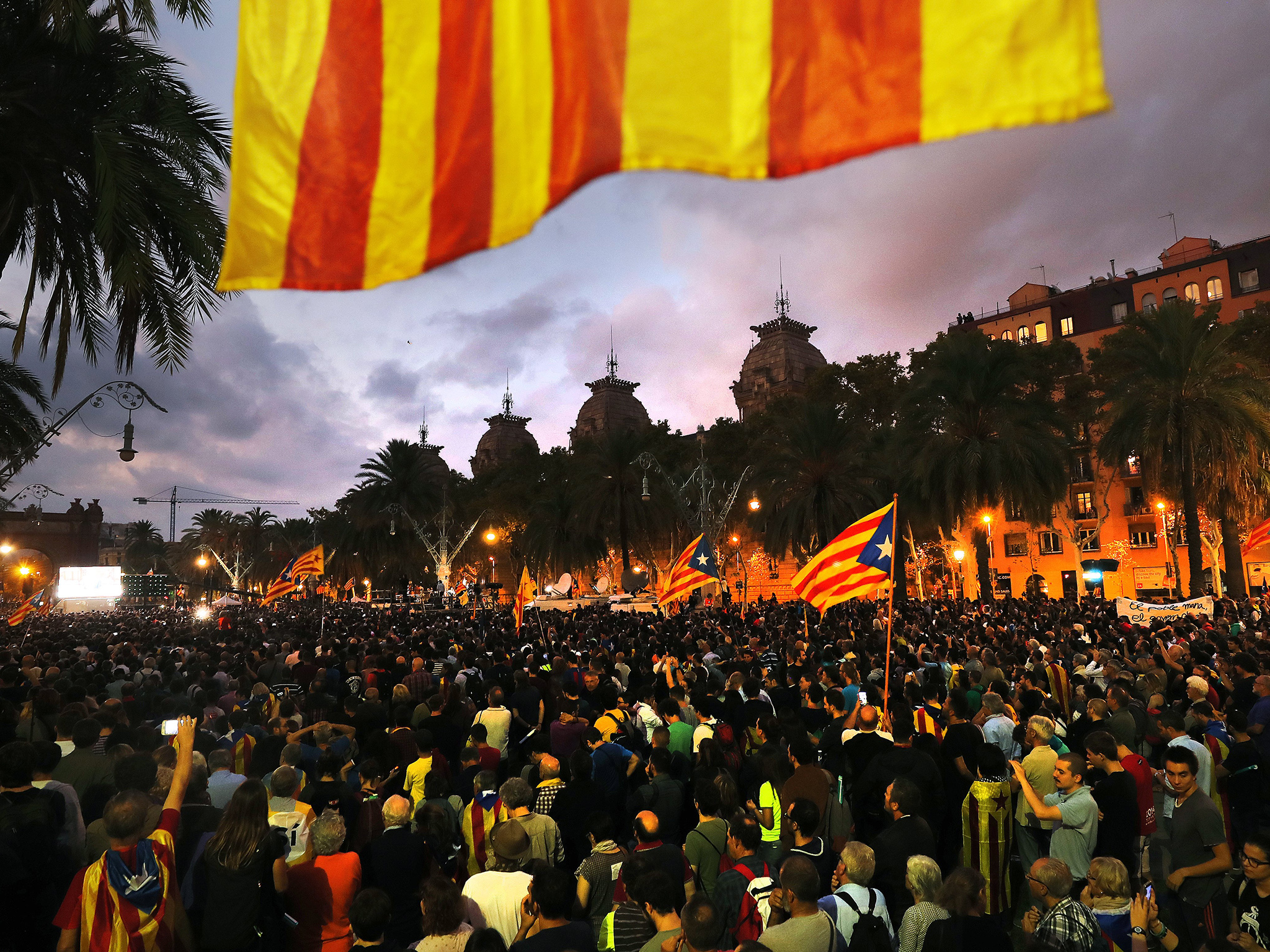What’s Next For Catalonia and Democracy in Spain?
An Interview with European Parliament Member Jordi Solé
Catalonia’s Independence Coalition plans to re-elect president Puidgemont from his self-imposed exile in Brussels. In response, Spanish Prime Minister Rajoy will disband the Catalan Parliament, again.
Will Mr. Rajoy call for snap elections until he gets the Government he wants? And with seven elected officials in jail or self-imposed exile, how will Catalonia’s Parliament proceed?
Looking for answers, I sat down with Jordi Solé, member of the European Parliament and secretary of international relations for Esquerra Republicana de Catalunya, the leftist independent party, recently awarded 32 seats in The Catalan parliament.
“We have to do everything we can to keep an absolute majority. I wouldn’t do anything that would risk this majority”
But wouldn’t the safest bet be for the jailed Parliament members to step down, allowing party members next in line to take their place?
Well, yes, of course it would. But this is about more than low risk and high reward. For Catalonia, it is about, “restoring the legitimate government.”
It would be easy to mistake the dispute as a clash of egos between Madrid and Catalonia, and to be sure, egos are present, a fact that a smiling but sincere Solé admitted to. But there is more, “this is a real political problem and it’s not going to disappear,” Mr. Solé tells me.
Prime Minister Rajoy calls Mr. Puidgemont a fugitive, and insists that the referendum was unconstitutional. Catalan independent parties insist their President is a political prisoner who was legitimately elected to office, twice. Is a democratic constitution meant to protect the people or to protect the state?
Political prisoners or not, the seven parliament members can’t vote if they are in jail.
“That’s debatable,” Mr. Solé tells me with a smile. He believes that the prisoners will be able to attend Parliament for the day to vote, before returning to jail.
I nearly lose my composure. Is that even legal?
“It depends who interprets the law,” he answers and when I ask who that is, the politician laughs, shakes his head and tells me, “That’s the problem. The court in Madrid decides.”
The situation is absurd and even Mr. Solé admits it sounds crazy, but at the heart of the process is an insistence on democracy. This is not a movement led by nationalistic groups or by myopic views. This is a movement empowered by people with a conviction that it would be foolish to look away from.
The Catalan Independent movement is not going away.
And what is their strategy moving forwards? Is compromise an option?
“We have always been willing to compromise. We have always said that this will only be solved by politics and that is what we are missing in Madrid.”
What would Madrid need to offer to achieve a resolution?
A good start would be recognizing Catalonia as a nation within Spain, and convening a bilateral dialogue. For Spain, this seems a nonstarter.
And Catalonia’s proposal?
Self-determination.
“Let us vote.” Mr. Sole says, his face sincere when he confides, “They would have won the vote,” referring to Madrid. But continued repression from Spain is narrowing that margin.
So, is it independence or bust rallied by insistent nationalists? No.
It is democracy or bust.
“We are not nationalists, we are independentists and we want to stop being independentists as soon as possible. Independence is not my ideology, it is a means towards a better country and a better Europe.”
The European Union it seems, wants nothing to do with Catalan independence, a position that Mr. Solé does not imagine will change, although pockets of support within the EU are growing. A sort of friendship group, Catalonia EU dialogue platform from different countries and different political groups supports the end of political repression.
“We don’t pretend that at this point someone, for example Mr. Juncker, go and say openly that they support the Catalan Republic,” Mr. Solé says, “but, if you allow police violence to take place against peaceful voters, at least in a passive way, by not criticizing it openly, you are creating a dangerous precedent.”
Independence sentiment is growing, and on Catalonia’s side, the movement will remain peaceful and political. This is not a cultural revolution. This is a people’s movement towards a better society, one that many feel, is impossible within Spain. According the Mr. Solé, “The fight for independence has never been stronger.”


